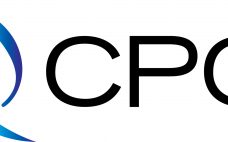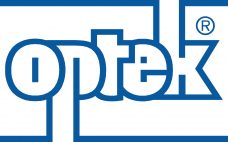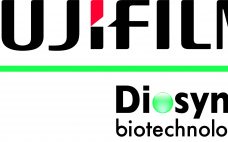Appropriate handling and removal of nucleic acids is crucial for many applications in red biotechnology and molecular biology. Upon the production of many biopharmaceuticals in fermentative processes (e.g., proteins, antibodies, and vaccines), nucleic acids are concomitantly generated and accumulated in culture broth, particularly when microbial cells are disrupted during work-up. Such accumulation increases the viscosity of the liquid fraction significantly and complicates downstream processing and purification. To be marketable and comply with strict safety regulations, biopharmaceutical products need to be…
Industry Innovators 2018-2019
New Genderless AseptiQuik Connector for Higher Flow in Bioprocessing
Failure is not an option. When a single drop of fluid can make a huge difference in your single-use system, you need smart, reliable, and easy-to-use fluid handling solutions that get the job done right and safely. That is why biopharmaceutical manufacturers from all over the world rely on CPC’s AseptiQuik® connectors. They provide quick and easy sterile connections, even in nonsterile environments. They feature an easy-to-use three-step assembly and come in a wide range of size options and genderless…
Development of Novel Cellulose Based rProtein A Capture Resins for Improved Workflow Effective Mab Purification
A new product development approach will be described here for the affinity capture of monoclonal antibodies (MAbs) from cell culture materials using a novel base stable rProtein A ligand with up to six available Fc binding sites. The resin is based on a stable cellulose bead structure with excellent flow properties combined with the affinity ligand immobilized at multiple sites to yield a robust next generation MAb capture resin with a high level of binding capacity. These resins have been…
Continuous Batch Chromatography and More: Multifunctional, Twin-Column Continuous Chromatography in a Simple, Robust Design
The LEWA EcoPrime® Twin LPLC multicolumn chromatography system is easy to use and GMP ready. It offers seamless scale-up for continuous batch chromatography from process development to large-scale biopharmaceutical production. The EcoPrime Twin platform spans a wide range of flow and column sizes and has several options to incorporate multiple functionality on a single unit. The EcoPrime Twin system is built on ChromaCon’s Contichrom patented approach to twin-column purification. Because of the two-column configuration, the EcoPrime Twin is a simple…
Process Intensification and Continuous Bioprocessing: Multistep Multicolumn Chromatography (MS-MCC)
Until now, one chromatography system was needed to execute one chromatography step. With one three-module BioSC® system, three chromatography separations — including viral inactivation (VI) and in-line dilution (ILD) — can be operated simultaneously and continuously. This system is a straightforward switch from several batch skids to a single DSP skid (Figure 1). One skid performing an entire downstream process from capture to polishing can reduce a facility footprint drastically and decrease costs significantly. One key benefit of using this…
Measuring Ultra-High-Concentrated Proteins Using Single-Use Inline Process Control Solutions
Optek-Danulat GmbH has been providing solutions for the bioprocessing industry for over 30 years. optek inline analyzers measure turbidity, UV-Vis-NIR absorbance, color, pH, and conductivity using innovative technologies for accurate and reliable results. The Single-Use Cell System for Downstream Bioprocessing: optek’s single-use cell (S.U.C.) system consists of the disposable cell, a stainless-steel cell holder, proven optical sensors also used in conventional systems, and a converter capable of operating optical, pH, and conductivity sensors. The system is designed to optimize separation,…
PFA Stability Vials for Simplified Validation
The adoption of disposables or single-use technology (SUT) in biopharmaceutical manufacturing is growing rapidly. SUT offers improved flexibility, reduced risk of contamination, and lower overall costs. Bags made from laminated polymers are used widely as disposable containers for the freezing and storage of bulk drug substance (BDS). But if the properties of a BDS require it to be stored at –70 °C, then fluoropolymer (perfluoroalkoxy (PFA) or fluorinated ethylene propylene (FEP)) bottles are the only choice because those materials have…
Antibody–Drug Conjugate Surrogate Purification: TOYOPEARL® PPG-600M HIC Resin for DAR-Separation
Antibody–drug conjugates (ADCs) are promising biopharmaceuticals. They combine the high selectivity and affinity to cancer cells with the toxicity of chemotherapeutics in one molecule. ADCs consist of a monoclonal antibody covalently bound by a linker to a highly potent cytotoxic drug. ADC-surrogates contain a nontoxic payload with similar structure and physiochemical properties as the toxic payload of an ADC. Therefore, they can be used as models to develop suitable purification processes or analytical methods. The ADC-surrogate in this work consists…
25 Years of Biologics Development and Manufacturing Experience
Avid Bioservices is a full-service, dedicated contract development and manufacturing organization (CDMO) focused on development and manufacturing of biopharmaceutical products derived from mammalian cell culture. Avid provides process development and CGMP clinical and commercial product manufacturing and offers expertise supporting analytical development, qualification, and validation activities. Additional service offerings include cell line optimization, cell culture and feed optimization, product characterization, and stability testing. Avid has 25 years of experience producing a comprehensive range of proteins, including monoclonal antibodies and recombinant…
Scalable Gene Therapy Processes
Developing a long-term manufacturing-ready process for gene therapy and viral vaccine products can be a challenge for a number of reasons. First-in-human trials require developing a process with limited knowledge, and success metrics are unknown (e.g., assays to measure success have not yet been developed). In addition, the components of a treatment are difficult to buy or make, and in many cases, components of a process are rare and exist in very small quantities. Finally, such a process is difficult…










